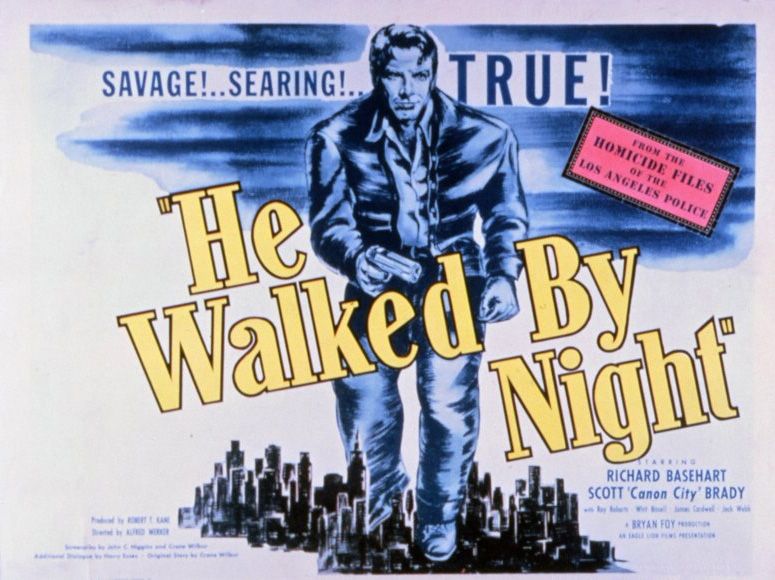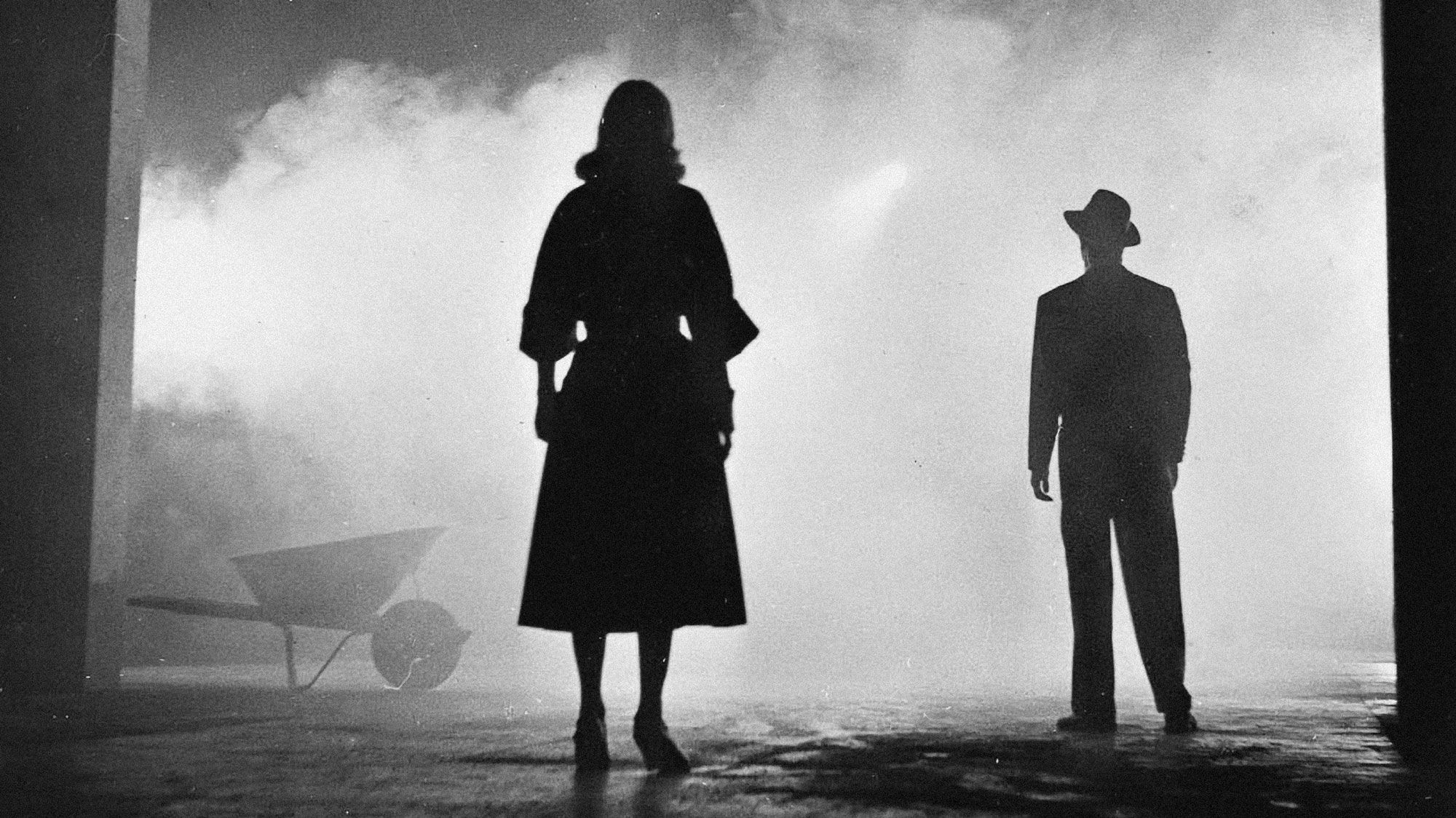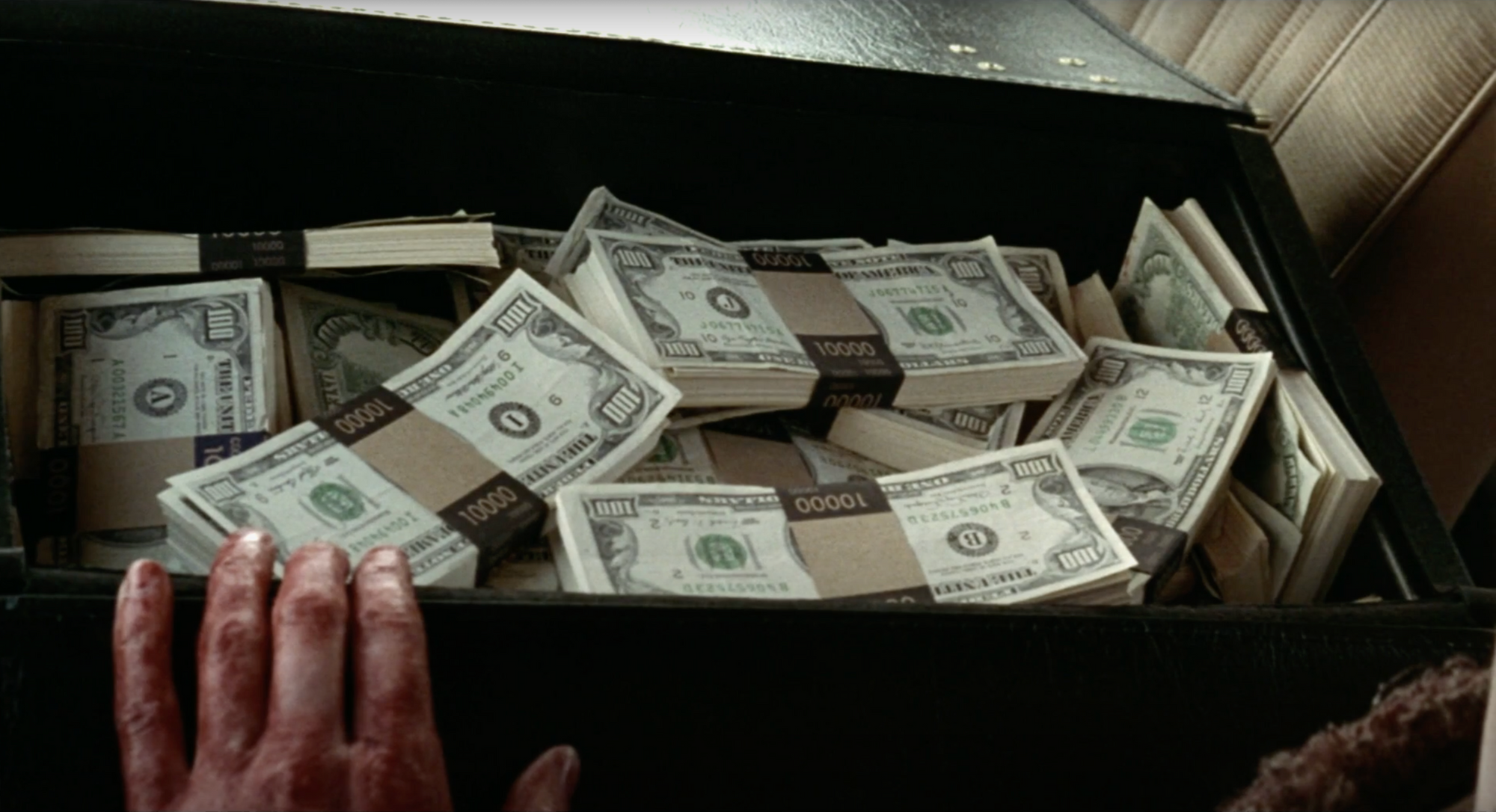
He Walked By Night
Welcome Back to "Welcome to Sullyville": A Publication About the Gilded American Underworld
Sometime at the beginning of this pandemic, a few weeks in or so, I started running again. It had been a few years since I'd seriously committed myself to a training regimen, and there were some novel challenges this time. Running with a mask on would take some getting used to, for a start. The usual huffing and puffing of the first runs felt more desperate under a mask, the way a fish gasps for air, flopping around on a sunny boat deck.
The Los Angeles heat was alien, too– running in 90 degree midday sun, I was amazed how much weaker and slower I was, even by my own forgiving standards. Stranger still was the zig and zag across streets and off sidewalks, any time another masked pedestrian was sighted on the approach. With so many of my neighbors penned up indoors all day, it seemed like more people were strolling the streets from dawn til dusk, especially when the air was coolest for running.
In short, I needed to figure out how to run outdoors, at a time when brushing against pedestrians in sunny Los Angeles could, it was warned, kill somebody. So I started running at night.
It was immediately strange; it felt instantly perverse. I loved it. Running at night, with only the beam of my phone to guide me, I felt removed from the rest of the world, even as I dashed through it. I didn't want to run amidst all my neighbors, on some bright shining morning, it turned out. I liked not being seen. I liked pushing myself like that, in my unlit proving ground, the rest of the world lingering before the TVs I'd see glowing from some houses, or dawdling before refrigerators on the way to bed.
I don't know if I've ever experienced the famous "runner's high," but when my heart is pounding, I see the world differently. Running in morning along the Pacific coast, I feel part of some vast system of expiration, my lungs filling and deflating just as the ocean waves lap and recede. Jogging alongside the Los Angeles River, or through Griffith Park, I smell water, dirt–I see craning birds, crows circling, I hear frogs belching. I feel closer to it, because I am deprived of any comfortable psychic distance from the birds and dust and sun; I too am a scrambling creature, trying to stay alive.
So huffing at night, legs sore as I ran, I began to notice all sorts of things I'd never see on a daylight run. Trees take on a ghostly aspect, for one thing. Silhouetted against the streetlights, their sagging branches take on a silvery glow, the leaves like feathers of a magnificent roosting bird. As if to strengthen the effect, the hooting of an unseen owl overjoyed me on one run, pleased as I was just to know such a bird was out there, somewhere. And Wise Owl wasn't the only one.
The skunk was extremely bold, for a start. He seemed young, but big, still, his tail full-bodied and swept back like a black-and-white pompadour. He seemed utterly unimpressed by me, stumbling across him–and worse, as I stopped and stared at him, he actually started to cross the street toward me. I was intruding on his turf, was the unspoken message. I was the interloper, regardless of my human presumptions to dominance, and he was utterly uncowed by me. I had to run then, for more than my own cardiovascular health.
The skunks, I would soon find, were out in force most nights, toddling along the sidewalks and curbs with their handsome puffy tails trailing. But there were others. The masked raccoon on the corner was even bigger, a burly burglar even on his fine little paws. Running one night, I came to sense something was moving beside me–and jumped three feet back, realizing I was eyeball to eyeball with the possum keeping pace with me, scurrying along the top length of the chain-link fence at eye level with me.
And one evening, when it was still the slightest sliver of dusk, there, in the middle of the road, paws proudly splayed on the road, was the coyote. If the skunk felt he owned my street, and the raccoon the neighborhood, and the possum the fences and treetops, this coyote looked like he owned the West. He must have come from some other place, somewhere he could sleep free from bother, but for a skinny guy, and one smaller in person than you'd think, he looked utterly unfazed by the odd car or gawking jogger around him.
Mike Davis, the great historian of Southern California, famously described Los Angeles as a city of quartz–a place constantly building over its own history, where any excavation will uncover the past, refracted through whatever traces remain. But for the three coyotes I saw one other night, on an aimless drive through the hills, past, present, and future bore little difference. I slowed my car to a crawl, seeing them, three skinny coyotes trotting across the two lane blacktop. They had been here before Los Angeles ever existed; to the Tongva who had lived here first, the coyote had been a trickster god, revered, a master of creation, just as it had been to so many Native American tribes in the Southwest.
That power remained, even if the humans around now didn't worship them, concerned themselves with coyotes only insofar as they might eat a pet cat or dog. But there at night in the Hollywood Hills, I could see no more superior creature. For they were surely the only ones in Los Angeles County utterly indifferent to the fact that the road they were trotting over was Mulholland Drive.

We are a long way now from when the Tongva people were the only human inhabitants of what became Los Angeles, fitting themselves to the cycles of nature. Humble participants in some greater ecosystem, such indigenous peoples were ethnically cleansed by European settlers, destroyed in a genocide so successful that it's seldom acknowledged as the founding act of the United States of America. It was the atrocity which defined a continent, elided ever since by the most obnoxious, arrogant people to ever walk the Earth: Americans.
It was a crime, what was done to make this country, tainting forever after anything established on this soil. Crime is a loaded word, here in America. The way it's usually situated by all the anthills of power here, desperate to ensure their own continued influence, is of some destructive force bubbling upwards, corroding the structures of society. As such, all of our institutions of authority–police forces, courts, feds, politicians, banks, military branches–protect decent, stable society from such agents of chaos. The favorite self-image of cops, as a thin blue line dividing order from anarchy, is the most famous iteration of this idea.
All of this rests on the false assumption that, in some important sense, these institutions of power are not, in and of themselves, stewards themselves of an ongoing criminal enterprise. The idea would be laughed at. But of course, it's the truth. A week on from the conviction of a police officer, from a large American city, for the murder of George Floyd, the exhilaration of one such killer facing a modest set of consequences for his crime has faded. More citizens have been slain across the country by the faceless confederates of one Derek Chauvin, Minneapolis cop. Will any of them face any sort of retribution?
Anyone with eyes and a brain can see that police forces, and the forces of criminality which they're alleged to be fighting, are coterminous. In the form of one lowly foot soldier like Chauvin, a criminal inhabits the body of a police officer. Part of a gang subsidized by the taxpayers, the average person hopes these lawless subjects will behave well, and maybe even serve others. But beholden to no higher authority, untrammeled by any meaningful oversight, the point of being a police officer is to do whatever you want to extract respect from others and yourself.
That, really, is the point then. In an institution that's a thresher, everyone is expected to be a blade. This might seem baffling if you operate under the assumption (as I did for many years, a standard white American child) that the purpose of a police force is to protect and serve. Not what police actually are: muscle, for big money, for pet bigotries, for disposing of the inconvenient and the despised. The only institution it really serves, in practice, is the big combo established in Jamestown all those years ago, enforcers for the gold prospectors who thought themselves so special for coming here.
"Greed showed up on the American continent in the late sixteenth century," writes social critic Morris Berman, "when what would later become the United States started to be colonized by a particularly aggressive and entrepreneurial segment of the English middle class." As distant as these strange-hatted pioneers might seem now, we are possessed of their spirits, still, a chilling creed of accumulation and violence which has never died. Berman cites the work of historian Louis Hartz in helping us to understand how this could be. The late Hartz's theory of "fragment societies," expounded upon throughout his career, posits that settler states like America freeze in amber some specific behavior or trend from the motherland, basing an entire new fantasyland around it–"in this case," writes Berman, "the mentality of hustling, of go-getting, of unlimited economic expansion."
Napoleon's famous aphorism that England was "a nation of shopkeepers" is commonly understood as an insult, but it wasn't so simple. As Napoleon might have seen it, Britain's great strength was in matters of commerce. Its merchants, protected by a blue-water navy, could pursue their obsession with extracting money from every corner of Earth. This is America's great inheritance, a bottomless drive for more, produced by hook or by crook. These are the cramped circumstances under which we now, today, live–the biggest dream a rapacious English greedhead could have come up with in 1600, licking his lips and gazing across the water.

If this fetid bog is America, constructed along the ideological lines already mentioned, is it any wonder there is so much violence and roiling insanity inside its borders? But what's treated as criminal in this country, to be punished by a vast prison archipelago, are, almost without exception, the misdeeds of the vast American underclass–the unconnected, the powerless, the expendable. The vast machinery of American might, soaring above the slums and ringed with barbed wire, would never be prosecuted with an ounce of the violence visited upon the powerless. It would be a snake eating its own tail–suicide.
With a few thousand stories of scaffolding constructed on this rotten foundation, you can imagine that the America of 2021 is pretty malformed, listing, unstable. It's a sick place, a bunch of rackets more than anything resembling a nation. Blithely mentioning to a female friend my epiphany, my joy running at night, she turned sardonic: "Must be nice." How embarrassed I was by my own ignorance. That I could safely enjoy my night run was a product of luck, or circumstance, or birth; through sheer chance, other people would see such exercise as intensely hazardous, an invitation to danger.
This is the ubiquity of such sickness, here. So what's to be done under such conditions?
I find a paradox is the answer. At no time do I feel more alone, yet plugged into the broader cycles of life, than when I am running or writing. Only your two legs can carry you when running; a piece of writing lives or dies because of what you write. All I can do is my best, on my own, with the knowledge that I am my brother's keeper–another bozo on the bus, another LA County organism, like the skunks and possums and coyotes. I'm not so special, and that's my salvation. The world may be mean, ugly, violent, stupid; but what I can do is write as well as I can, be kind to others, and get some exercise.
I jumped from my previous newsletter's host because profit, I felt, had eaten away any moral sense guiding a company which, to a modest degree, I was enriching. Others make big money writing for them; that's fine. I can only do what I can do. I don't see much point in despairing, because, what would be the point of building anything with whatever time left we have on Earth?
There are traditions, of thought and creation, capable of piercing the kind of airy self-concern that fosters apathy and ignorance, which can make me forget a midnight run is a luxury. I keep mentioning crime; indeed, when it came time to build this new newsletter, I realized it was a subject to which I was drawn again and again. And that will be the subject of "Welcome to Sullyville," in one way or another, as long as I write this: crime, as committed in the gilded American underworld–not the grisly, low spectacle of a thousand exploitative true crime shows and podcasts, but crime as a moral outrage, a function of impoverishment, greed, and selfishness, needing no violated law to be called criminal by this author. My hope is that together, we'll rethink what crime writing can be, and in so doing, locate crookedness of all stripes in some less scrutinized precincts.
I hope you'll enjoy it. To all the skunks and raccoons and coyotes who read this, I could not do it without you.
